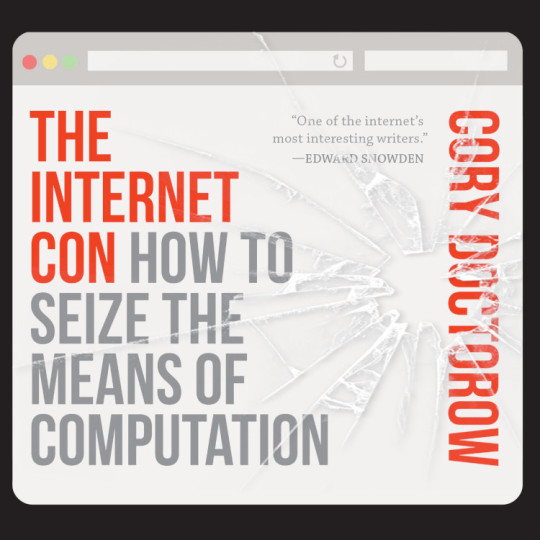#war and speech
Text


Nicaragua has taken Germany to the ICJ for its complicity in Gaza's genocide
#yemen#jerusalem#tel aviv#current events#palestine#free palestine#gaza#free gaza#news on gaza#palestine news#news update#war news#war on gaza#germany#fascism#free speech
3K notes
·
View notes
Text


Source
Source


#Palestine#news#current events#Columbia#education#free Palestine#Israel#protest#free speech#politics#us politics#government#the left#progressive#twitter post#activism#important#anti war
2K notes
·
View notes
Text
Mario Savio giving a speech at Berkeley in 1964 during an occupation of the university.
I mistakenly labeled this as an occupation and speech against the Vietnam war. It was in fact an occupation by the Free Speech Movement, who objected to attacks on free speech and academic freedom during the cold war, when "radical" student groups were banned and faculty had to swear an anti-Communist loyalty oath or be fired. Students objected to universities being used as a source of knowledge and innovation for the military industrial complex but not being allowed to speak their minds that, which does have a lot of parallels with the current occupations.
There's a time when the operation of the machine becomes so odious, makes you so sick at heart that you can't take part!
You can't even passively take part!
And you've got to put your bodies upon the gears and upon the wheels, upon the levers, upon all the apparatus -- and you've got to make it stop!
And you've got to indicate to the people who run it, to the people who own it -- that unless you're free the machine will be prevented from working at all!!
#1964#mario savio#speech#berkeley#students#student protest#anti-war#free palestine#palestine#university#occupation#Berkeley Free Speech Movement
2K notes
·
View notes
Text
I think it's fascinating that the quotes:
"Have you forgotten sir, we were at war? A fight with an alien race for the very survival of our species. I feel I must remind you that it is an undeniable, and may I say fundamental quality of man, that when faced with extinction, every alternative is preferable."
"When you spend every day fighting a war, you to demonize your attackers. To you, they're evil, they're subhuman. Because if they weren't, what would that make you? What I'm trying to say... is I've been afraid to see you for what you really are. You're our brothers. Our sisters. And the things we've done to one another are unforgivable."
"These guys want to use us, take us away from our families, and send us all over the dad-gum galaxy just to test if their agents are ready for the big fight? Well... guess I'm interested in showin' em exactly what a big fight is all about! So I'm not ordering you to go. I ain't even asking. You do what you gotta do, Private."
came from the same series whose standard fare is lines like:
"What in the hell are you two doing?" / "We're being executed by our own men, sir." / "Cut it out."
"I only drink the blood of my enemies, and the occasional strawberry yoohoo."
"You always said I could sleep when I’m dead, Sarge, and guess what? I am dead. This purgatory is about to become purga-snore-y, yawn!"
...and both categories manage to be a poignant statement about the nature of war and what it does to the people in it.
#everyone always talks about the more dramatic bits of rvb with the speeches and the 8+ seasons of plot development as the anti-war part#but the comedicization of the violence and death that the characters go through. the tongue-in-cheek gung-ho attitudes.#the way that they're so desensitized to the idea of death or gruesome injury to the point that it's!!! a comedy show!!!#all of that is just as much a statement of the fucked up nature of war!!!#it's like Col. Flagg and Frank Burns in M*A*S*H. they're so simultaneously into and detached from the war and it's a STATEMENT#idk I'm just. thinking about my favourite anti-war media. drawing mash-rvb parallels. and suddenly had to scream about it#might reread the paper on rvb being anti-war media. for enrichment.#not video games#late nights with ali#ali watches rvb#rvb#red vs blue
923 notes
·
View notes
Text
Forcing your computer to rat you out

Powerful people imprisoned by the cluelessness of their own isolation, locked up with their own motivated reasoning: “It’s impossible to get a CEO to understand something when his quarterly earnings call depends on him not understanding it.”
Take Mark Zuckerberg. Zuckerberg insists that anyone who wanted to use a pseudonym online is “two-faced,” engaged in dishonest social behavior. The Zuckerberg Doctrine claims that forcing people to use their own names is a way to ensure civility. This is an idea so radioactively wrong, it can be spotted from orbit.
From the very beginning, social scientists (both inside and outside Facebook) told Zuckerberg that he was wrong. People have lots of reasons to hide their identities online, both good and bad, but a Real Names Policy affects different people differently:
https://memex.craphound.com/2018/01/22/social-scientists-have-warned-zuck-all-along-that-the-facebook-theory-of-interaction-would-make-people-angry-and-miserable/
For marginalized and at-risk people, there are plenty of reasons to want to have more than one online identity — say, because you are a #MeToo whistleblower hoping that Harvey Weinstein won’t sic his ex-Mossad mercenaries on you:
https://www.newyorker.com/news/news-desk/harvey-weinsteins-army-of-spies
Or maybe you’re a Rohingya Muslim hoping to avoid the genocidal attentions of the troll army that used Facebook to organize — under their real, legal names — to rape and murder you and everyone you love:
https://www.amnesty.org/en/latest/news/2022/09/myanmar-facebooks-systems-promoted-violence-against-rohingya-meta-owes-reparations-new-report/
But even if no one is looking to destroy your life or kill you and your family, there are plenty of good reasons to present different facets of your identity to different people. No one talks to their lover, their boss and their toddler in exactly the same way, or reveals the same facts about their lives to those people. Maintaining different facets to your identity is normal and healthy — and the opposite, presenting the same face to everyone in your life, is a wildly terrible way to live.
None of this is controversial among social scientists, nor is it hard to grasp. But Zuckerberg stubbornly stuck to this anonymity-breeds-incivility doctrine, even as dictators used the fact that Facebook forced dissidents to use their real names to retain power through the threat (and reality) of arrest and torture:
https://pluralistic.net/2023/01/25/nationalize-moderna/#hun-sen
Why did Zuck cling to this dangerous and obvious fallacy? Because the more he could collapse your identity into one unitary whole, the better he could target you with ads. Truly, it is impossible to get a billionaire to understand something when his mega-yacht depends on his not understanding it.
This motivated reasoning ripples through all of Silicon Valley’s top brass, producing what Anil Dash calls “VC QAnon,” the collection of conspiratorial, debunked and absurd beliefs embraced by powerful people who hold the digital lives of billions of us in their quivering grasp:
https://www.anildash.com/2023/07/07/vc-qanon/
These fallacy-ridden autocrats like to disguise their demands as observations, as though wanting something to be true was the same as making it true. Think of when Eric Schmidt — then the CEO of Google — dismissed online privacy concerns, stating “If you have something that you don’t want anyone to know, maybe you shouldn’t be doing it in the first place”:
https://www.eff.org/deeplinks/2009/12/google-ceo-eric-schmidt-dismisses-privacy
Schmidt was echoing the sentiments of his old co-conspirator, Sun Microsystems CEO Scott McNealy: “You have zero privacy anyway. Get over it”:
https://www.wired.com/1999/01/sun-on-privacy-get-over-it/
Both men knew better. Schmidt, in particular, is very jealous of his own privacy. When Cnet reporters used Google to uncover and publish public (but intimate and personal) facts about Schmidt, Schmidt ordered Google PR to ignore all future requests for comment from Cnet reporters:
https://www.cnet.com/tech/tech-industry/how-cnet-got-banned-by-google/
(Like everything else he does, Elon Musk’s policy of responding to media questions about Twitter with a poop emoji is just him copying things other people thought up, making them worse, and taking credit for them:)
https://www.theverge.com/23815634/tesla-elon-musk-origin-founder-twitter-land-of-the-giants
Schmidt’s actions do not reflect an attitude of “If you have something that you don’t want anyone to know, maybe you shouldn’t be doing it in the first place.” Rather, they are the normal response that we all have to getting doxed.
When Schmidt and McNealy and Zuck tell us that we don’t have privacy, or we don’t want privacy, or that privacy is bad for us, they’re disguising a demand as an observation. “Privacy is dead” actually means, “When privacy is dead, I will be richer than you can imagine, so stop trying to save it, goddamnit.”
We are all prone to believing our own bullshit, but when a tech baron gets high on his own supply, his mental contortions have broad implications for all of us. A couple years after Schmidt’s anti-privacy manifesto, Google launched Google Plus, a social network where everyone was required to use their “real name.”
This decision — justified as a means of ensuring civility and a transparent ruse to improve ad targeting — kicked off the Nym Wars:
https://epeus.blogspot.com/2011/08/google-plus-must-stop-this-identity.html
One of the best documents to come out of that ugly conflict is “Falsehoods Programmers Believe About Names,” a profound and surprising enumeration of all the ways that the experiences of tech bros in Silicon Valley are the real edge-cases, unreflective of the reality of billions of their users:
https://www.kalzumeus.com/2010/06/17/falsehoods-programmers-believe-about-names/
This, in turn, spawned a whole genre of programmer-fallacy catalogs, falsehoods programmers believe about time, currency, birthdays, timezones, email addresses, national borders, nations, biometrics, gender, language, alphabets, phone numbers, addresses, systems of measurement, and, of course, families:
https://github.com/kdeldycke/awesome-falsehood
But humility is in short supply in tech. It’s impossible to get a programmer to understand something when their boss requires them not to understand it. A programmer will happily insist that ordering you to remove your “mask” is for your own good — and not even notice that they’re taking your skin off with it.
There are so many ways that tech executives could improve their profits if only we would abandon our stubborn attachment to being so goddamned complicated. Think of Netflix and its anti-passsword-sharing holy war, which is really a demand that we redefine “family” to be legible and profitable for Netflix:
https://pluralistic.net/2023/02/02/nonbinary-families/#red-envelopes
But despite the entreaties of tech companies to collapse our identities, our families, and our online lives into streamlined, computably hard-edged shapes that fit neatly into their database structures, we continue to live fuzzy, complicated lives that only glancingly resemble those of the executives seeking to shape them.
Now, the rich, powerful people making these demands don’t plan on being constrained by them. They are conservatives, in the tradition of #FrankWilhoit, believers in a system of “in-groups whom the law protects but does not bind, alongside out-groups whom the law binds but does not protect”:
https://crookedtimber.org/2018/03/21/liberals-against-progressives/#comment-729288
As with Schmidt’s desire to spy on you from asshole to appetite for his own personal gain, and his violent aversion to having his own personal life made public, the tech millionaires and billionaires who made their fortune from the flexibility of general purpose computers would like to end that flexibility. They insist that the time for general purpose computers has passed, and that today, “consumers” crave the simplicity of appliances:
https://memex.craphound.com/2012/01/10/lockdown-the-coming-war-on-general-purpose-computing/
It is in the War On General Purpose Computing that we find the cheapest and flimsiest rhetoric. Companies like Apple — and their apologists — insist that no one wants to use third-party app stores, or seek out independent repair depots — and then spend millions to make sure that it’s illegal to jailbreak your phone or get it fixed outside of their own official channel:
https://doctorow.medium.com/apples-cement-overshoes-329856288d13
The cognitive dissonance of “no one wants this,” and “we must make it illegal to get this” is powerful, but the motivated reasoning is more powerful still. It is impossible to get Tim Cook to understand something when his $49 million paycheck depends on him not understanding it.
The War on General Purpose Computing has been underway for decades. Computers, like the people who use them, stubbornly insist on being reality-based, and the reality of computers is that they are general purpose. Every computer is a Turing complete, universal Von Neumann machine, which means that it can run every valid program. There is no way to get a computer to be almost Turing Complete, only capable of running programs that don’t upset your shareholders’ fragile emotional state.
There is no such thing as a printer that will only run the “reject third-party ink” program. There is no such thing as a phone that will only run the “reject third-party apps” program. There are only laws, like the Section 1201 of the Digital Millennium Copyright Act, that make writing and distributing those programs a felony punishable by a five-year prison sentence and a $500,000 fine (for a first offense).
That is to say, the War On General Purpose Computing is only incidentally a technical fight: it is primarily a legal fight. When Apple says, “You can’t install a third party app store on your phone,” what they means is, “it’s illegal to install that third party app store.” It’s not a technical countermeasure that stands between you and technological self-determination, it’s a legal doctrine we can call “felony contempt of business model”:
https://locusmag.com/2020/09/cory-doctorow-ip/
But the mighty US government will not step in to protect a company’s business model unless it at least gestures towards the technical. To invoke DMCA 1201, a company must first add the thinnest skin of digital rights management to their product. Since 1201 makes removing DRM illegal, a company can use this molecule-thick scrim of DRM to felonize any activity that the DRM prevents.
More than 20 years ago, technologists started to tinker with ways to combine the legal and technical to tame the wild general purpose computer. Starting with Microsoft’s Palladium project, they theorized a new “Secure Computing” model for allowing companies to reach into your computer long after you had paid for it and brought it home, in order to discipline you for using it in ways that undermined its shareholders’ interest.
Secure Computing began with the idea of shipping every computer with two CPUs. The first one was the normal CPU, the one you interacted with when you booted it up, loaded your OS, and ran programs. The second CPU would be a Trusted Platform Module, a brute-simple system-on-a-chip designed to be off-limits to modification, even by its owner (that is, you).
The TPM would ship with a limited suite of simple programs it could run, each thoroughly audited for bugs, as well as secret cryptographic signing keys that you were not permitted to extract. The original plan called for some truly exotic physical security measures for that TPM, like an acid-filled cavity that would melt the chip if you tried to decap it or run it through an electron-tunneling microscope:
https://pluralistic.net/2020/12/05/trusting-trust/#thompsons-devil
This second computer represented a crack in the otherwise perfectly smooth wall of a computer’s general purposeness; and Trusted Computing proposed to hammer a piton into that crack and use it to anchor a whole superstructure that could observe — and limited — the activity of your computer.
This would start with observation: the TPM would observe every step of your computer’s boot sequence, creating cryptographic hashes of each block of code as it loaded and executed. Each stage of the boot-up could be compared to “known good” versions of those programs. If your computer did something unexpected, the TPM could halt it in its tracks, blocking the boot cycle.
What kind of unexpected things do computers do during their boot cycle? Well, if your computer is infected with malware, it might load poisoned versions of its operating system. Once your OS is poisoned, it’s very hard to detect its malicious conduct, since normal antivirus programs rely on the OS to faithfully report what your computer is doing. When the AV program asks the OS to tell it which programs are running, or which files are on the drive, it has no choice but to trust the OS’s response. When the OS is compromised, it can feed a stream of lies to users’ programs, assuring these apps that everything is fine.
That’s a very beneficial use for a TPM, but there’s a sinister flipside: the TPM can also watch your boot sequence to make sure that there aren’t beneficial modifications present in your operating system. If you modify your OS to let you do things the manufacturer wants to prevent — like loading apps from a third-party app-store — the TPM can spot this and block it.
Now, these beneficial and sinister uses can be teased apart. When the Palladium team first presented its research, my colleague Seth Schoen proposed an “owner override”: a modification of Trusted Computing that would let the computer’s owner override the TPM:
https://web.archive.org/web/20021004125515/http://vitanuova.loyalty.org/2002-07-05.html
This override would introduce its own risks, of course. A user who was tricked into overriding the TPM might expose themselves to malicious software, which could harm that user, as well as attacking other computers on the user’s network and the other users whose data were on the compromised computer’s drive.
But an override would also provide serious benefits: it would rule out the monopolistic abuse of a TPM to force users to run malicious code that the manufacturer insisted on — code that prevented the user from doing things that benefited the user, even if it harmed the manufacturer’s shareholders. For example, with owner override, Microsoft couldn’t force you to use its official MS Office programs rather than third-party compatible programs like Apple’s iWork or Google Docs or LibreOffice.
Owner override also completely changed the calculus for another, even more dangerous part of Trusted Computing: remote attestation.
Remote Attestation is a way for third parties to request a reliable, cryptographically secured assurances about which operating system and programs your computer is running. In Remote Attestation, the TPM in your computer observes every stage of your computer’s boot, gathers information about all the programs you’re running, and cryptographically signs them, using the signing keys the manufacturer installed during fabrication.
You can send this “attestation” to other people on the internet. If they trust that your computer’s TPM is truly secure, then they know that you have sent them a true picture of your computer’s working (the actual protocol is a little more complicated and involves the remote party sending you a random number to cryptographically hash with the attestation, to prevent out-of-date attestations).
Now, this is also potentially beneficial. If you want to make sure that your technologically unsophisticated friend is running an uncompromised computer before you transmit sensitive data to it, you can ask them for an attestation that will tell you whether they’ve been infected with malware.
But it’s also potentially very sinister. Your government can require all the computers in its borders to send a daily attestation to confirm that you’re still running the mandatory spyware. Your abusive spouse — or abusive boss — can do the same for their own disciplinary technologies. Such a tool could prevent you from connecting to a service using a VPN, and make it impossible to use Tor Browser to protect your privacy when interacting with someone who wishes you harm.
The thing is, it’s completely normal and good for computers to lie to other computers on behalf of their owners. Like, if your IoT ebike’s manufacturer goes out of business and all their bikes get bricked because they can no longer talk to their servers, you can run an app that tricks the bike into thinking that it’s still talking to the mothership:
https://nltimes.nl/2023/07/15/alternative-app-can-unlock-vanmoof-bikes-popular-amid-bankruptcy-fears
Or if you’re connecting to a webserver that tries to track you by fingerprinting you based on your computer’s RAM, screen size, fonts, etc, you can order your browser to send random data about this stuff:
https://jshelter.org/fingerprinting/
Or if you’re connecting to a site that wants to track you and nonconsensually cram ads into your eyeballs, you can run an adblocker that doesn’t show you the ads, but tells the site that it did:
https://www.eff.org/deeplinks/2019/07/adblocking-how-about-nah
Owner override leaves some of the beneficial uses of remote attestation intact. If you’re asking a friend to remotely confirm that your computer is secure, you’re not going to use an override to send them bad data about about your computer’s configuration.
And owner override also sweeps all of the malicious uses of remote attestation off the board. With owner override, you can tell any lie about your computer to a webserver, a site, your boss, your abusive spouse, or your government, and they can’t spot the lie.
But owner override also eliminates some beneficial uses of remote attestation. For example, owner override rules out remote attestation as a way for strangers to play multiplayer video games while confirming that none of them are using cheat programs (like aimhack). It also means that you can’t use remote attestation to verify the configuration of a cloud server you’re renting in order to assure yourself that it’s not stealing your data or serving malware to your users.
This is a tradeoff, and it’s a tradeoff that’s similar to lots of other tradeoffs we make online, between the freedom to do something good and the freedom to do something bad. Participating anonymously, contributing to free software, distributing penetration testing tools, or providing a speech platform that’s open to the public all represent the same tradeoff.
We have lots of experience with making the tradeoff in favor of restrictions rather than freedom: powerful bad actors are happy to attach their names to their cruel speech and incitement to violence. Their victims are silenced for fear of that retaliation.
When we tell security researchers they can’t disclose defects in software without the manufacturer’s permission, the manufacturers use this as a club to silence their critics, not as a way to ensure orderly updates.
When we let corporations decide who is allowed to speak, they act with a mixture of carelessness and self-interest, becoming off-the-books deputies of authoritarian regimes and corrupt, powerful elites.
Alas, we made the wrong tradeoff with Trusted Computing. For the past twenty years, Trusted Computing has been creeping into our devices, albeit in somewhat denatured form. The original vision of acid-filled secondary processors has been replaced with less exotic (and expensive) alternatives, like “secure enclaves.” With a secure enclave, the manufacturer saves on the expense of installing a whole second computer, and instead, they draw a notional rectangle around a region of your computer’s main chip and try really hard to make sure that it can only perform a very constrained set of tasks.
This gives us the worst of all worlds. When secure enclaves are compromised, we not only lose the benefit of cryptographic certainty, knowing for sure that our computers are only booting up trusted, unalterted versions of the OS, but those compromised enclaves run malicious software that is essentially impossible to detect or remove:
https://pluralistic.net/2022/07/28/descartes-was-an-optimist/#uh-oh
But while Trusted Computing has wormed its way into boot-restrictions — preventing you from jailbreaking your computer so it will run the OS and apps of your choosing — there’s been very little work on remote attestation…until now.
Web Environment Integrity is Google’s proposal to integrate remote attestation into everyday web-browsing. The idea is to allow web-servers to verify what OS, extensions, browser, and add-ons your computer is using before the server will communicate with you:
https://github.com/RupertBenWiser/Web-Environment-Integrity/blob/main/explainer.md
Even by the thin standards of the remote attestation imaginaries, there are precious few beneficial uses for this. The googlers behind the proposal have a couple of laughable suggestions, like, maybe if ad-supported sites can comprehensively refuse to serve ad-blocking browsers, they will invest the extra profits in making things you like. Or: letting websites block scriptable browsers will make it harder for bad people to auto-post fake reviews and comments, giving users more assurances about the products they buy.
But foundationally, WEI is about compelling you to disclose true facts about yourself to people who you want to keep those facts from. It is a Real Names Policy for your browser. Google wants to add a new capability to the internet: the ability of people who have the power to force you to tell them things to know for sure that you’re not lying.
The fact that the authors assume this will be beneficial is just another “falsehood programmers believe”: there is no good reason to hide the truth from other people. Squint a little and we’re back to McNealy’s “Privacy is dead, get over it.” Or Schmidt’s “If you have something that you don’t want anyone to know, maybe you shouldn’t be doing it in the first place.”
And like those men, the programmers behind this harebrained scheme don’t imagine that it will ever apply to them. As Chris Palmer — who worked on Chromium — points out, this is not compatible with normal developer tools or debuggers, which are “incalculably valuable and not really negotiable”:
https://groups.google.com/a/chromium.org/g/blink-dev/c/Ux5h_kGO22g/m/5Lt5cnkLCwAJ
This proposal is still obscure in the mainstream, but in tech circles, it has precipitated a flood of righteous fury:
https://arstechnica.com/gadgets/2023/07/googles-web-integrity-api-sounds-like-drm-for-the-web/
As I wrote last week, giving manufacturers the power to decide how your computer is configured, overriding your own choices, is a bad tradeoff — the worst tradeoff, a greased slide into terminal enshittification:
https://pluralistic.net/2023/07/24/rent-to-pwn/#kitt-is-a-demon
This is how you get Unauthorized Bread:
https://arstechnica.com/gaming/2020/01/unauthorized-bread-a-near-future-tale-of-refugees-and-sinister-iot-appliances/
All of which leads to the question: what now? What should be done about WEI and remote attestation?
Let me start by saying: I don’t think it should be illegal for programmers to design and release these tools. Code is speech, and we can’t understand how this stuff works if we can’t study it.
But programmers shouldn’t deploy it in production code, in the same way that programmers should be allowed to make pen-testing tools, but shouldn’t use them to attack production systems and harm their users. Programmers who do this should be criticized and excluded from the society of their ethical, user-respecting peers.
Corporations that use remote attestation should face legal restrictions: privacy law should prevent the use of remote attestation to compel the production of true facts about users or the exclusion of users who refuse to produce those facts. Unfair competition law should prevent companies from using remote attestation to block interoperability or tie their products to related products and services.
Finally, we must withdraw the laws that prevent users and programmers from overriding TPMs, secure enclaves and remote attestations. You should have the right to study and modify your computer to produce false attestations, or run any code of your choosing. Felony contempt of business model is an outrage. We should alter or strike down DMCA 1201, the Computer Fraud and Abuse Act, and other laws (like contract law’s “tortious interference”) that stand between you and “sole and despotic dominion” over your own computer. All of that applies not just to users who want to reconfigure their own computers, but also toolsmiths who want to help them do so, by offering information, code, products or services to jailbreak and alter your devices.
Tech giants will squeal at this, insisting that they serve your interests when they prevent rivals from opening up their products. After all, those rivals might be bad guys who want to hurt you. That’s 100% true. What is likewise true is that no tech giant will defend you from its own bad impulses, and if you can’t alter your device, you are powerless to stop them:
https://pluralistic.net/2022/11/14/luxury-surveillance/#liar-liar
Companies should be stopped from harming you, but the right place to decide whether a business is doing something nefarious isn’t in the boardroom of that company’s chief competitor: it’s in the halls of democratically accountable governments:
https://www.eff.org/wp/interoperability-and-privacy
So how do we get there? Well, that’s another matter. In my next book, The Internet Con: How to Seize the Means of Computation (Verso Books, Sept 5), I lay out a detailed program, describing which policies will disenshittify the internet, and how to get those policies:
https://www.versobooks.com/products/3035-the-internet-con
Predictably, there are challenges getting this kind of book out into the world via our concentrated tech sector. Amazon refuses to carry the audio edition on its monopoly audiobook platform, Audible, unless it is locked to Amazon forever with mandatory DRM. That’s left me self-financing my own DRM-free audio edition, which is currently available for pre-order via this Kickstarter:
http://seizethemeansofcomputation.org

I’m kickstarting the audiobook for “The Internet Con: How To Seize the Means of Computation,” a Big Tech disassembly manual to disenshittify the web and bring back the old, good internet. It’s a DRM-free book, which means Audible won’t carry it, so this crowdfunder is essential. Back now to get the audio, Verso hardcover and ebook:
https://www.kickstarter.com/projects/doctorow/the-internet-con-how-to-seize-the-means-of-computation

If you’d like an essay-formatted version of this post to read or share, here’s a link to it on pluralistic.net, my surveillance-free, ad-free, tracker-free blog:
https://pluralistic.net/2023/08/02/self-incrimination/#wei-bai-bai

[Image ID: An anatomical drawing of a flayed human head; it has been altered to give it a wide-stretched mouth revealing a gadget nestled in the back of the figure's throat, connected by a probe whose two coiled wires stretch to an old fashioned electronic box. The head's eyes have been replaced by the red, menacing eye of HAL 9000 from Stanley Kubrick's '2001: A Space Odyssey.' Behind the head is a code waterfall effect as seen in the credits of the Wachowskis' 'The Matrix.']

Image:
Cryteria (modified)
https://commons.wikimedia.org/wiki/File:HAL9000.svg
CC BY 3.0
https://creativecommons.org/licenses/by/3.0/deed.en
#pluralistic#chaffing#spoofing#remote attestation#rene descartes#adversarial interoperability#war on general purpose computing#canvas attacks#vpns#compelled speech#onion routing#owner override#stalkerware#ngscb#palladium#trusted computing#secure enclaves#tor#interop#net neutrality#taking the fifth#right to remain silent#real names policy#the zuckerberg doctrine#none of your business#the right to lie#right to repair#bossware#spyware#wei web environment integrity
2K notes
·
View notes
Text

made it gayer
#dungeon meshi#farcille#marcille donato#falin touden#manga panel#yes I was cackling the whole time I edited this#free to use#took the speech bubbles out and made it gayer#by this I mean I changed Marcille’s expression#Falin was already making that face#edit: if you’re going to be a hater on any ship in the fandom; f*ck off. This post is not for you (certified: a multishipper)#if you’re the type to like/reblog posts that go “eww who ships Marcille x Laios.” This post is not for you#if you’re hating on the m/m ships because “it’s taking attention away from Farcille” f*ck off. Shipping is not a competition#as you can see#I am getting TIRED of shipping wars being brewed in the fandom#I thought we were all adults here#why am I seeing Voltron-like behaviour in the main tag#Fy posts
2K notes
·
View notes
Text






HAPPY STAR WARS DAY!
MAY THE FORCE BE WITH YOU
#star wars#star wars day#may the force be with you#may the fourth be with you#may the fourth#may the 4th#may the 4th be with you#swedit#starwarsedit#starwarsblr#starwarsfilms#swsource#starwarscolors#usergif#skyshippergifs#happy star wars day friends!#tried something new because I never work with layouts#i love this speech and andor was such a damn good series#it made me think of all of those who sacrificed their lives in star wars for the greater good#making this made me realize that the most emotional death in star wars for me was kanan#i never thought an animated series could gut punch me that hard but wow#that one was rough#if anyone read this far let me know which death was the hardest for you???
583 notes
·
View notes
Text
As any self-respecting Zane stan, of course I've seen Decoded. And of course I loved the sweet but subtle character moment of him being bashful and awkward when Jay brought up the statue.

For the longest time, I've always interpreted this moment as Zane being his typical humble, bashful self. And while I'm sure that's true to an extent, recent events from Dragons Rising have led me to consider an alternative interpretation.
If I may bring your attention to this quote from DRpt2:

"Zane had impressive shoes to fill. No one could live up to him, maybe not even Zane himself."
I dunno. There's just something about the fact that Zane's own legacy has outgrown him, that he's overshadowed by the memory of his past self, that rather than a testament to the love his friends and community have for him he instead sees the statue as an insurmountable burden he can never hope to live up to...
Which brings me to yet another blink-and-you'll-miss-it moment from the Shadow of Ronin video game (I know it's canon-ness is debatable, but hear me out for a sec)

While everyone is gathered around Nya and speaking to Borg via hologram, Zane is...gone. He's off in the distance, standing at the base of his statue, just...staring at it.
God, and when you add this all up to Zane's Ice Emperor baggage...yeah.
#it does of course lead me to wonder about the scene in s4#where everyone is trying to rally community support for the war effort#and zane gives his lil speech at the base of his own statue#id like to think zane had simply chosen to speak at the park only to discover 'oh hey weird theres a statue of me'#bc its not like anyone wouldve had the time or consideration to tell him about it considering everything else going on#that moment when youre trying to rally civilians to help you fight an army of snake warriors and you accidentally run into your own memoria#'well one of is is going to have to change :/'#ninjago#destiny post
733 notes
·
View notes
Text
Leo being put into a situation where there is absolutely no fighting, just verbal manipulation and perception games, would be amazing to witness. We see a lot in the series how good he is at subterfuge and how he uses his perception to manipulate to great effect, so it’d be so cool to really see it put to the test even more.
Manipulation is one of the most effective tactical strategies of all time, so just imagine Leo putting this skillset of his to the full test. Imagine the boys slowly get up to busting bigger and more powerful criminals, including those with networks of crime under their belt, and a simple fight isn’t enough to take them down. For criminals like this, Leo’s skills in subterfuge would be deadly.
#rottmnt#rise of the teenage mutant ninja turtles#rottmnt leo#rottmnt headcanons#me back to talking about Leo’s incredibly high affinity for subterfuge#genuinely think it’s one of if not his best and most honed skill#AND IT’S A VITAL NINJA SKILL#above fighting battle tactics and the like#it’s verbal blindspots#Sun Tzu’s The Art of War literally states that “the greatest victory is won without battle’’#and idk I think Leo would be so good at this and we see him do it in the show quite a bit but not to the amount I yearn for#but yeah like just think Leo getting sent in and his bros standing guard#of course he wouldn’t be the ONLY one involved but 100% he’d be the main player#man idk I just really really love when their specific skill sets that ARENT the fighting ones are used it’s so interesting to me#like we already know Leo can easily take in a whole room’s worth of people and know exactly how to avoid them all#we know he can manipulate manipulators into his schemes#we know he’s good at improv which is essential to the games of speech high end criminals like to play#it would be SO INTERESTING#OKAY HEAR ME OUT-#he’s asked by Big Mama to join her at a criminal ball of sorts#she needs to regain power and he needs to take down big name criminals#thus a deal#no but really it’s so cool seeing Leo specifically do his best tactics through thinking like his enemy and predicting how they’d act
469 notes
·
View notes
Text
Jaster Mereel, holorecording: Greetings, Exalted One. Allow me to introduce myself. I am Jaster Mereel, Mand'alor and humble student of history. I know that you are powerful, mighty Master Nu, and that your anger with my people must be equally powerful. I seek an audience with Your Greatness to bargain for entrance into your Jedi Archives. With your wisdom, I'm sure that we can work out an arrangement which will be mutually beneficial and enable us to avoid any unpleasant confrontation. As a token of my goodwill, I present to you a gift: these two historical jetii'kade from my own Keldabe Archives, along with their provenances. Both are in working condition and will serve you well.
Jocasta Nu: oh neat, free grad student!
#star wars#jaster mereel#jocasta nu#speech modified from luke's address to jabba from return of the jedi
783 notes
·
View notes
Text






On cycles
Clarice Lispector, A Hora da Estrela | The Hour of the Star // Lisa Marie Basile, “I Put the Coffin Out to Sea” // Sophocles (trans. Anne Carson), Elektra // Wikipedia entry, “Ouroboros” // Margaret Atwood, “Speeches for Dr. Frankenstein” // Frank Bidart, “The War of Vaslav Nijinsky”
#clarice lispector#a hora da estrela#the hour of the star#lisa marie basile#frank bidart#the war of vaslav nijinksy#sophocles#anne carson#elektra#classic literature#greek mythology#margaret atwood#half hanged mary#parallels#web weaving#words#found poetry#speeches for Dr frankenstein
457 notes
·
View notes
Text



#yemen#jerusalem#tel aviv#current events#palestine#free palestine#gaza#free gaza#news on gaza#palestine news#news update#war news#war on gaza#antisemitism#anti zionism#free speech
287 notes
·
View notes
Text
"And to men, also, just be wary of any mentality that would make cattle or make vessels of women. Because that same mentality will make machines and tools of you, and make monsters of you."
- Hozier
#hozier#andrew hozier byrne#hozier album#wasteland baby#unreal unearth#nina cried power#jackboot jump#hozier self titled#gender#oppression#political speech#anti capitalist#anti war#anti zionisim#anti capitalism#belphegor luna
391 notes
·
View notes
Text
I’m deep diving back into my doctor who special interest and I’m wondering which doctor you all consider your doctor, and which doctor you think you’d get along with best. The tenth is my doctor but I’d get along soooo well with eleven i would be scared of basically every other doctor but not him
#doctor who#new who#classic whovians you are most welcome to offer input#in fact i insist#see the doctor who obsession is affecting my vocabulary and speech patterns#ive started saying oi#thanks donna#first doctor#second doctor#third doctor#fourth doctor#fifth doctor#sixth doctor#seventh doctor#eighth doctor#war doctor#ninth doctor#tenth doctor#eleventh doctor#twelfth doctor#thirteenth doctor#ik theres more but idk what they’re called#i dont think id be scared of the thirteenth or the fifth but who knows
463 notes
·
View notes
Text








FREE FREE PALESTINE
Wednesday, May 1, 2024
Week 10 of Burbank for Palestine’s weekly protest outside Congressman Adam Schiff’s Burbank offices, including a march around downtown Burbank
You can sadly see on the sign that the thousands unit had to be whited out and increased. Horrifying
#free palestine#free gaza#from the river to the sea palestine will be free#gaza#palestine#gaza genocide#gaza strip#save palestine#stand with gaza#palestine protest#protests#i stand with palestine 🇵🇸#i stand with palestine#free palestine 🇵🇸#war on gaza#gazaunderattack#save gaza#news on gaza#freedom of speech#stop the genocide#genocide#burbank#california
293 notes
·
View notes
Text

Where's the Crisis?
Only a few weeks ago, the world was aghast at Israel's killing of seven World Central Kitchen aid workers in three separate vehicles, and an investigation revealed the IDF's AI targeting system that led to enormous numbers of civilian casualties. It's no mystery why students are protesting. Yet in American media coverage, the fact that these kids are protesting is treated like the far greater crisis, worse than the actual death and destruction being rained down on real human beings.
Receive my weekly newsletter and keep this work sustainable by joining the Sorensen Subscription Service! Also on Patreon.
165 notes
·
View notes